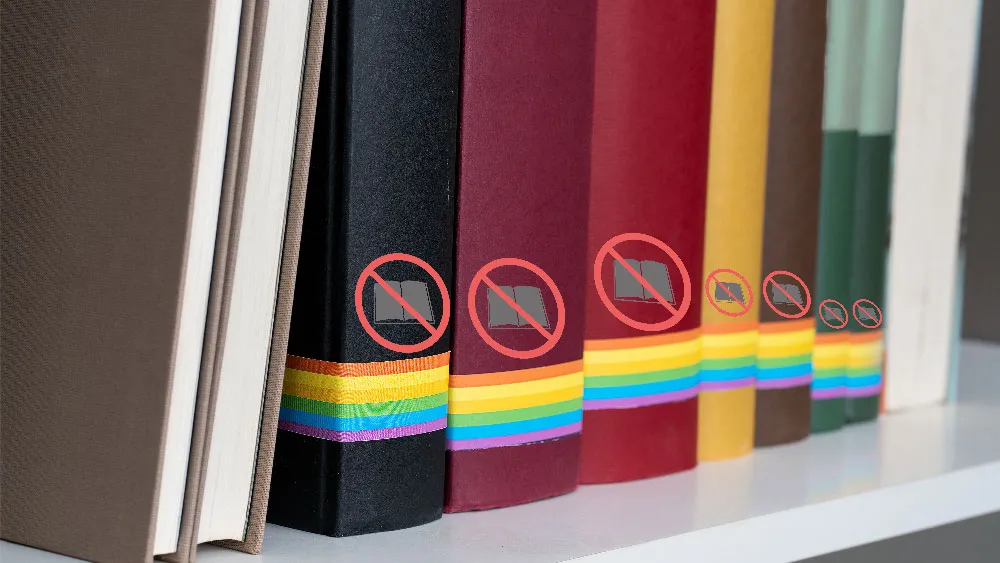May 19, 2011
Gay Men Do Worse After Prostate Cancer, Study Says
Kilian Melloy READ TIME: 4 MIN.
A new study finds that gay men do more poorly than straight men after a bout with prostate cancer, HealthDay News reported on May 16. The news comes in the wake of a study that shows that gay men have higher rates of cancer survival overall than do straight men.
The new study, presented on May 15 in Washington, D.C. at the American Urological Association's annual meeting, questioned 92 American and Canadian gay men via the Internet. Their responses were then checked against previously published findings about the general populace.
The resulting data suggested that gay men do worse physically and psychologically, reporting that they have lower function and a higher level of fear, the article said. Physical and mental functions alike were more adversely impacted in gay men who had been treated for prostate cancer than for the general population, the study indicated.
No previous study had examined the issue with an eye to the gay population, the article said.
"This is one of the early studies demonstrating that quality of life is more significantly impacted by prostate cancer in the gay population," said AUA spokesperson Dr. Tomas L. Griebling, whose comments were part of a media release. "More research is needed to determine what steps we can take to diminish these impacts."
The findings are only preliminary, but they stand in marked contrast to another recent study that indicates that gay men do better overall at surviving cancer than straight men do.
What is not clear is whether gays are at higher risk of cancer for some reason, or whether gays do better than straights at surviving a cancer diagnosis, a May 9 Reuters article reported.
A medical journal called Cancer has published a report on the findings, which are a result of analysis of three years worth of data gathered by the California Health Interview survey. The results show that gay men not only report a higher instance of surviving cancer, but they also tend to be diagnosed earlier--about ten years earlier than heterosexuals, on average, around age 41, CNN reported in a May 9 article
Anti-gay groups and publications may well seize upon the study's findings in the same way that critically denounced "studies" by discredited anti-gay researcher Paul Cameron have been touted as evidence that a so-called "gay lifestyle" might be detrimental to health and lead to significantly shorter lifespans. But health authorities pointed out that the California survey's findings do not provide enough information to draw any such conclusions.
For one thing, while the data suggest that there are more gay cancer survivors, this is not the same as a claim that gays are more likely to suffer from cancer. The results might just as easily be interpreted as meaning that gays survive cancer more often than heterosexuals do--perhaps due to better overall health habits such as paying attention to any warning signs and symptoms. Another possibility is that gays might have higher rates of more survivable forms of cancer, suffering less frequently from more lethal types of the disease.
"Out of 51,000 men, about 3,700 said they had been diagnosed with cancer as an adult," the Reuters article said. "While just over 8 percent of gay men reported a history of cancer, that figure was only 5 percent in straight men. The disparity could not be attributed to differences in race, age, or income between gay and straight men."
One of the study's authors speculated that HIV status might affect cancer rates, but added that this possible correlation could not be proven by the study.
"The study can't say whether gays and lesbians are more likely to develop cancer in the first place, since it doesn't include people who have died from the disease or may be too ill to answer questions, stressed study author Ulrike Boehmer, an associate professor of community health sciences at Boston University School of Public Health," reported HealthDay News on May 9.
"There's a higher prevalence of HIV positive men in the gay population, and we know that being HIV positive is related to cancers, so this might drive the differences we found," CNN reported Boehmer as saying.
The CNN article also noted that HIV+ individuals seem to be more susceptible to certain kinds of cancer, including lung cancer and testicular cancer.
Previous studies have indicated that GLBTs engage in cancer-related activities more than do other demographics--smoking and drinking, for example. Recent studies have also indicated that indoor tanning can cause cancer, and health experts have known for some time that the human papilloma virus, which can cause cancer, is transmitted through sexual contact, including oral sex.
"Gay men as a group have a bunch of risk factors for cancer," The National LGBT Cancer Network's Liz Margolies told Reuters. Margolies also pointed out health care disparities that can lead to gays receiving less frequent medical checkups.
"I don't think that we're going to get people to have early screening or see doctors except in emergencies," said Margolies, "until they can be guaranteed a safe and welcoming experience" at the hands of medical professionals.
In any event, "A lack of hard data" on the subject is problematic, Margolies said. "It's critical that we know [of any credible elevation in risk for gays] for funding and for program planning."
Kilian Melloy serves as EDGE Media Network's Associate Arts Editor and Staff Contributor. His professional memberships include the National Lesbian & Gay Journalists Association, the Boston Online Film Critics Association, The Gay and Lesbian Entertainment Critics Association, and the Boston Theater Critics Association's Elliot Norton Awards Committee.


